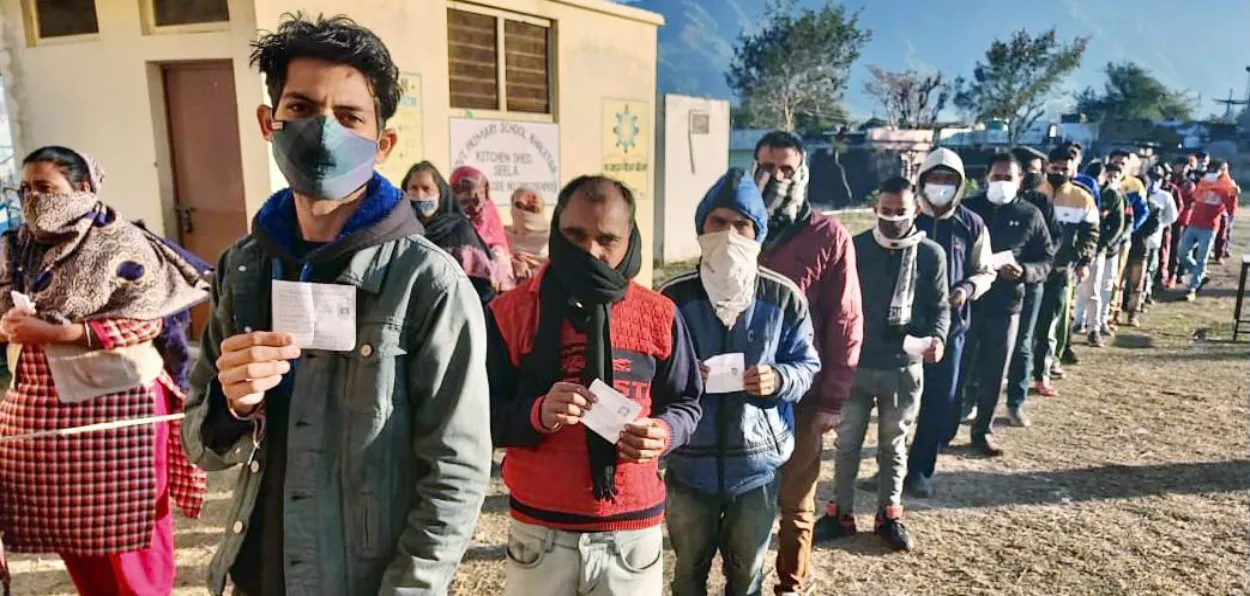
Ahmed Ali Fayyaz/Jammu
For the first time in its history, Jammu and Kashmir has ripened for elections in almost all of its democratic institutions in 2024 even as a call for these exercises has to be taken by the election authorities after necessary consultations with the security and intelligence agencies.
In its historic judgment on the abrogation of Article 370, the Supreme Court of India has ordered the first Assembly elections of the Union Territory to be held before 30 September 2024. However, conducting such a democratic exercise by the Election Commission of India (ECI) in the disturbed State of Jammu and Kashmir has been routinely subject to an assessment of the law and order situation by security and intelligence agencies.
In the past, after 1990, all such decisions have been taken by the ECI after thorough confabulations with the erstwhile State authorities and the Union Ministries of Home and Defence.
While the ECI has to take a call about holding the Assembly and the Lok Sabha elections, the UT’s election authority is supposed to conduct and monitor all other democratic exercises in the Urban Local Bodies (ULBs) and the Panchayati Raj Institutions (PRIs).
Elections for the 5 Lok Sabha seats -3 in Kashmir and 2 in Jammu-are due with the General elections before May 2024. As of now, there is no hitch in holding these elections as the authorities have been claiming remarkable improvement in the situation.
The last Assembly elections in the erstwhile State, which broke into two separate UTs in 2019—J&K with Assembly and Ladakh without Assembly—were held in October-November 2014. After 5 months of Governor’s rule, following the breakdown of Mehbooba Mufti’s PDP-BJP government, then Governor Satya Pal Malik dissolved J&K’s Assembly on 21 November 2018.
In August 2019, J&K was stripped of its special status and Statehood and bifurcated into two separate UTs with effect from 31 October 2019.
In the wake of losing Ladakh’s four seats followed by a fresh delimitation, J&K now has a Legislative Assembly of 90 members to be elected besides 5 to be nominated by the Lieutenant Governor. So the UT Assembly’s first elections are to be held by the ECI for 47 seats in Kashmir and 43 seats in Jammu any time before the deadline of 30 September 2024 set by the Supreme Court. For the first time in the erstwhile State’s history, the Assembly elections will be held after a pause of nearly 10 years.
In October 1996, Assembly elections in J&K were held after the longest gap of nine-and-a-half years.
Lok Sabha and Assembly apart, elections are also due in J&K in almost all other democratic institutions including the 78 ULBs-2 Municipal Corporations of Srinagar and Jammu, 19 Municipal Councils, and 57 Municipal Committees—comprising over 1,200 representatives. The last elections for UBLs were held in October-November 2018. Having completed their term of 5 years, these bodies have ceased to exist after November 2023 – January 2024.
Similarly, the grassroots democratic institutions in all 4,892 Panchayat Halqas, comprising nearly 40,000 Panches and Sarpanches, have completed their 5-year term and ceased to exist from 9 January 2024.
The UT government has lately delegated the powers of the ULBs and PRIs to its regular officers in the civil administration. It has also ordered an exercise of the summary revision of electoral rolls and fresh delimitation of wards and Halqas in tune with an amendment made by the LG-headed Administrative Council in the J&K Panchayati Raj Act and the passage of J&K Reservation (Amendment) Act by the Parliament for delineation of constituencies for women and reservation of constituencies for Other Backward Classes (OBCs).
Authorities are expecting general elections for ULBs and PRIs any time after the completion of the summary revision of electoral rolls and fresh delimitation of wards and Halqas before or after September 2024. According to them, the 2nd tier of PRIs—the Block Development Councils (BDCs)—has also ceased to exist from the date its electoral college of Panchayats became defunct.
In October-November 2019, authorities conducted the first BDC elections while simultaneously seeking to fill up 12,776 vacancies in Panches and Sarpanches. In 2018, polling took place only for the election of 27,281 Panches and Sarpanches and 12,776 seats remained vacant for a host of reasons including no filing of nomination papers.
The first elections for the 3rd tier of PRIs—20 District Development Councils (DDCs) of 14 members each—were held in October-December 2020. Apart from the 5 sitting Lok Sabha members, this is the only democratic institution functioning in J&K today. Its 5-year term will expire in early 2026.
ALSO READ: Why the Center had to ban Geelani’s defunct Tehreek-e-Hurriyat in Kashmir
Subject to the maintenance of the current environment of peace—in which trade and tourism have revived, the militant-sponsored hartals, demonstrations, funeral processions, gun salutes to slain guerrillas, recruitment of fresh militant cadres, and stone-pelting attacks on security forces have ended and the separatist insurgency has fallen to its lowest ebb—elections are visible in all democratic institutions, except DDCs, in J&K in 2024.
